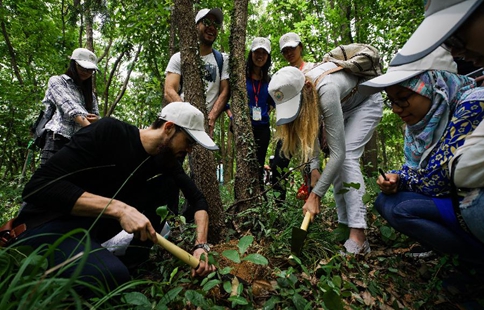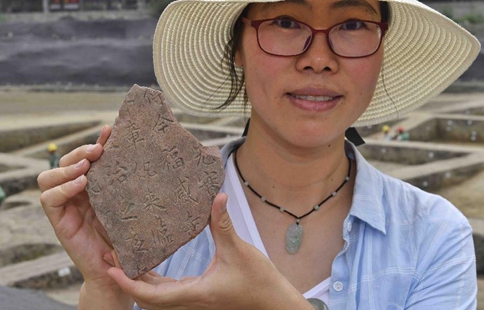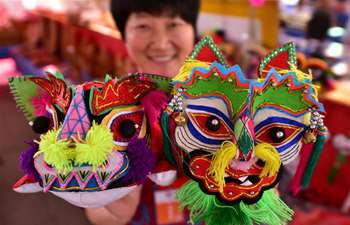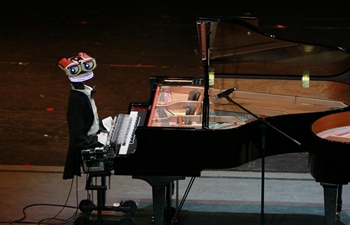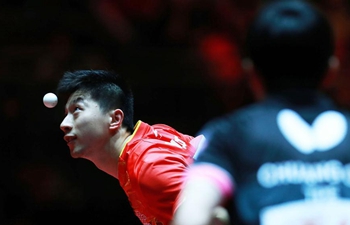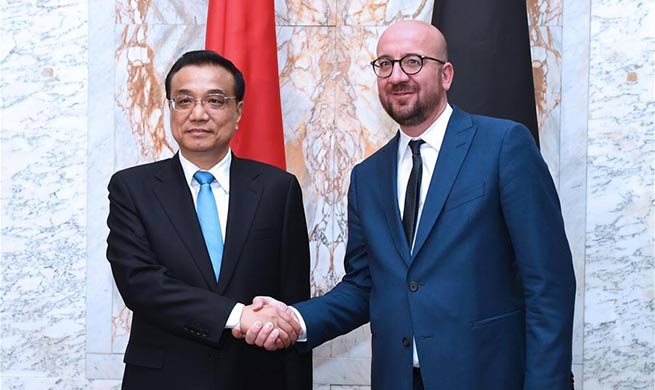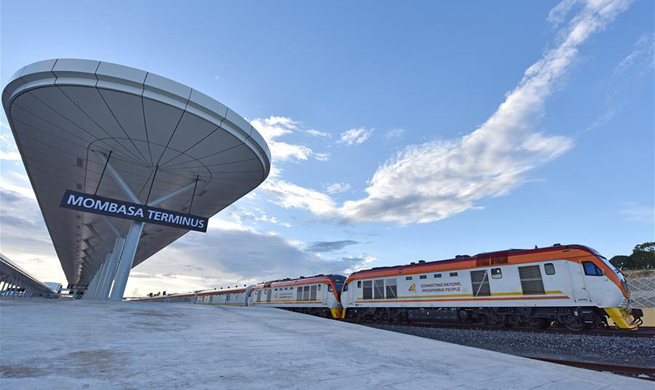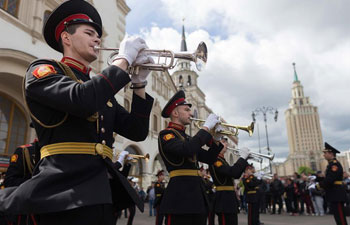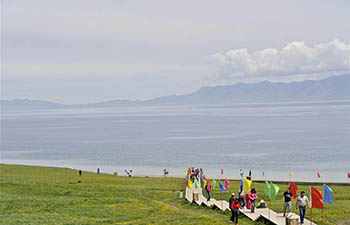HAVANA, June 4 (Xinhua) -- Cuban Brigadier General Gustavo Chui, 79, is proud of the Chinese heritage that has run through his veins thanks to his father Joseph, a Chinese man settled in Santiago de Cuba, the second most important city in the country.
His father opened a bakery in the hot eastern Cuban city and changed his name to a much more handsome one of Jose.
Together with his Cuban wife Ana Hilda Beltran, Jose taught the little Gustavo a sense of justice and rebellion that led him to join the guerrilla forces led by Fidel Castro in 1956.
The young guerrilla man began as a soldier. His military career gained a marked rise after the triumph of the rebels on January 1, 1959 in the Cuban Revolution led by Fidel Castro. Then he became Brigadier General in 1980, a rank also reached by Chinese descendants Armando Choi and Moses Sio Wong.
Chui's military trajectory, closely linked to the contemporary history of Cuba, is a reflection of the struggles of the Cubans for the independence of the island.
The retired general has taken pride in the contribution made by the Chinese and their descendants to Cuba, which has left a deep trace in history and in the formation of the country.
"I feel a great pride for our ancestors who arrived 170 years ago in our homeland... They joined the 10-year Independence War that began on October 10, 1868, when Carlos Manuel de Cespedes, the 'nation's father,' set off the war (with the declaration of Cuban independence)," he said.
The first 206 Chinese landed on June 3, 1847 in the Regla town on the right side of the Havana harbor. They were considered as the seed of the greater Chinese community in America.
At that time, cheap labor from Asia began to be hired in Cuba. Hundreds of Chinese left their families with the dream of earning a living on the new land, but their fate was cruel.
They were recruited by commercial agencies established in Macao and Hong Kong, and were locked in barracks until boarding the ships that sent them to America.
Every Chinese had to sign a contract establishing his subordination to the same employer for eight consecutive years for a monthly salary of four pesos of silver, a food ration and medicines.
At the end of the contract term, they would have 60 days to return to their country on their own or seek a new employer.
However, after stepping on the Cuban soil, they were taken to smelly deposits, in which they waited for some rich land owners to buy them at a price between 60 and 160 pesos, according to their physical potential and skills.
Most of the Chinese were sent to sugar mills, coffee and tobacco plantations, while others were taken to the mines in the eastern part of the country or to docks and factories in Havana.
The regulations set for the employees included corporal punishment of 12 lashes for disobedience and 18 for recidivism.
If they fled, the rangers had the permission to hunt them and would receive a reward deducted from the wage of the fugitive.
In spite of the harsh conditions, the immigration of the Chinese did not stop and the community grew to have 24,647 Chinese in the island in 1931.
In 1954, a few hundred Chinese entrepreneurs ran small businesses in Havana, such as butchers, shoemakers, dry cleaners, food and cloth stores, canteens and restaurants.
Havana Chinatown, an area of about 40 blocks in the city center, was one of the largest in America. Since 1999, it has undergone rapid restoration and renovation.
In Chinatown, the Kwong Wah Po, the only Chinese-language newspaper, has been in publication in Cuba for almost 90 years.
The national census in 2012 indicated that the Asian population on the island, mostly of Chinese origin, took up one percent of the 11.2 million national inhabitants.
The Cuban government, from May 30 to June 4, organized a series of cultural celebrations to honor the Chinese heritage, of which men like Chui are very proud.




